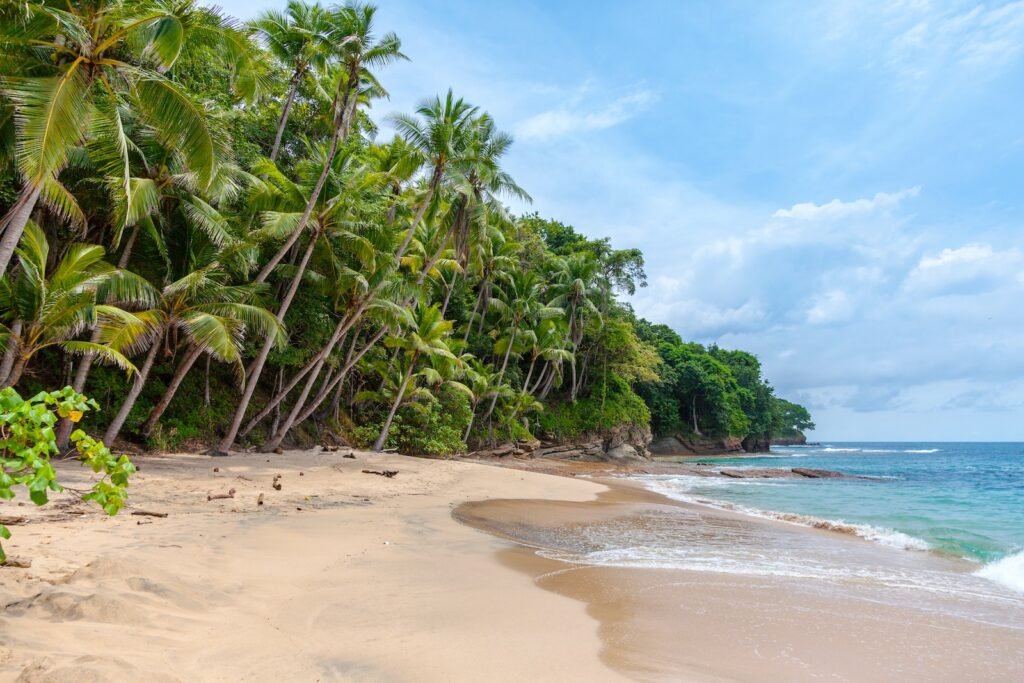The allure of metal detecting on tropical islands
Imagine strolling along pristine beaches, the warm sun kissing your skin, and the sound of gently crashing waves in the background. Now picture yourself holding a metal detector, eagerly searching for hidden treasures buried beneath the sand. Metal detecting on tropical islands is a thrilling and captivating adventure that has gained popularity among enthusiastic treasure hunters. These islands, with their rich histories and intriguing legends, offer a wealth of possibilities for discovering valuable artifacts and relics. In this article, we will delve into the fascinating world of metal detecting on tropical islands, exploring the basics of equipment, legalities and permits, top destinations, tips and techniques, the historical significance of finds, and preserving and displaying your treasure collection.

Understanding the basics of metal detecting equipment
Before embarking on your metal detecting journey, it is crucial to understand the basics of the equipment you will be using. Metal detectors are electronic devices that emit a magnetic field and detect metal objects buried beneath the surface. They consist of a control box, shaft, and search coil. The control box contains the circuitry that sends and receives signals, while the shaft connects the control box to the search coil, which is responsible for detecting metals. It is essential to choose a metal detector suitable for beach and water hunting, as these environments present unique challenges. Look for features such as waterproof or water-resistant capabilities, discrimination settings, and adjustable sensitivity to maximize your chances of finding buried treasures.
Unveiling the legalities and permits for island metal detecting
Before setting foot on a tropical island with a metal detector, it is crucial to familiarize yourself with the local laws and regulations. Island countries often have specific rules regarding metal detecting to protect their historical and cultural heritage. Some islands require individuals to obtain permits or seek permission from local authorities before engaging in metal detecting activities. Familiarize yourself with these regulations to ensure you are adhering to the law and avoiding any potential legal issues. Additionally, be mindful of protected areas or sites that may be off-limits for metal detecting. Respecting these guidelines will help preserve the islands’ historical treasures for future generations.
Revealing the top tropical island destinations for treasure hunting
Tropical islands offer a treasure trove of possibilities for metal detecting enthusiasts. Some of the top destinations for treasure hunting include the Caribbean islands, such as Puerto Rico and the Dominican Republic, which are known for their rich pirate history and shipwrecks. In the Pacific, Fiji and Hawaii beckon with tales of sunken treasures and ancient cultures. The Mediterranean islands, such as Malta and Cyprus, boast a blend of historical artifacts from various civilizations. Southeast Asian islands, like Bali and the Philippines, offer a mix of cultural and natural treasures. Each destination has its unique allure and promises an unforgettable metal detecting adventure.
Tips and techniques for successful metal detecting on islands
To maximize your chances of success while metal detecting on tropical islands, it is essential to employ effective techniques and strategies. Start by researching the history and folklore of the island you plan to visit. Understanding the past will help you identify potential treasure hotspots. Focus on areas where people historically congregated, such as beaches, picnic areas, and old settlements. Additionally, pay attention to changes in the shoreline caused by erosion or storms, as these events can expose previously buried items. Finally, be patient and thorough in your search, covering the area systematically and listening for faint signals that may indicate buried treasures.
Unearthing the historical significance of island finds
Each metal detecting find on a tropical island has the potential to unveil a piece of history. Discovering ancient coins, jewelry, or artifacts can shed light on the island’s past and the civilizations that once thrived there. Carefully documenting and researching your finds can provide valuable insights into the island’s historical significance and cultural heritage. Consult local experts, historians, or archaeologists to help authenticate and interpret your discoveries. By unearthing the historical significance of your island finds, you not only enrich your own knowledge but also contribute to the broader understanding of the island’s past.
Preserving and displaying your island treasure collection
Once you have amassed a collection of island treasures through metal detecting, it is essential to preserve and display them properly. Metal objects should be cleaned carefully using non-abrasive methods and stored in a way that prevents deterioration. Consider investing in display cases or shadow boxes to showcase your finds while protecting them from dust and damage. Labeling each item with relevant information, such as the date and location of discovery, will add context and enhance the educational value of your collection. Regularly revisit and maintain your collection, ensuring its longevity for future generations to appreciate and learn from.
CONCLUSION: Embrace the adventure of metal detecting on tropical islands
Metal detecting on tropical islands offers a unique blend of adventure, history, and the excitement of uncovering hidden treasures. By understanding the basics of equipment, legalities, and permits, choosing the right destinations, employing effective techniques, unearthing the historical significance of finds, and preserving and displaying your collection, you can embark on a memorable and rewarding journey. So, embrace the allure of metal detecting on tropical islands, and let your exploration of these hidden treasures begin. Happy hunting!
